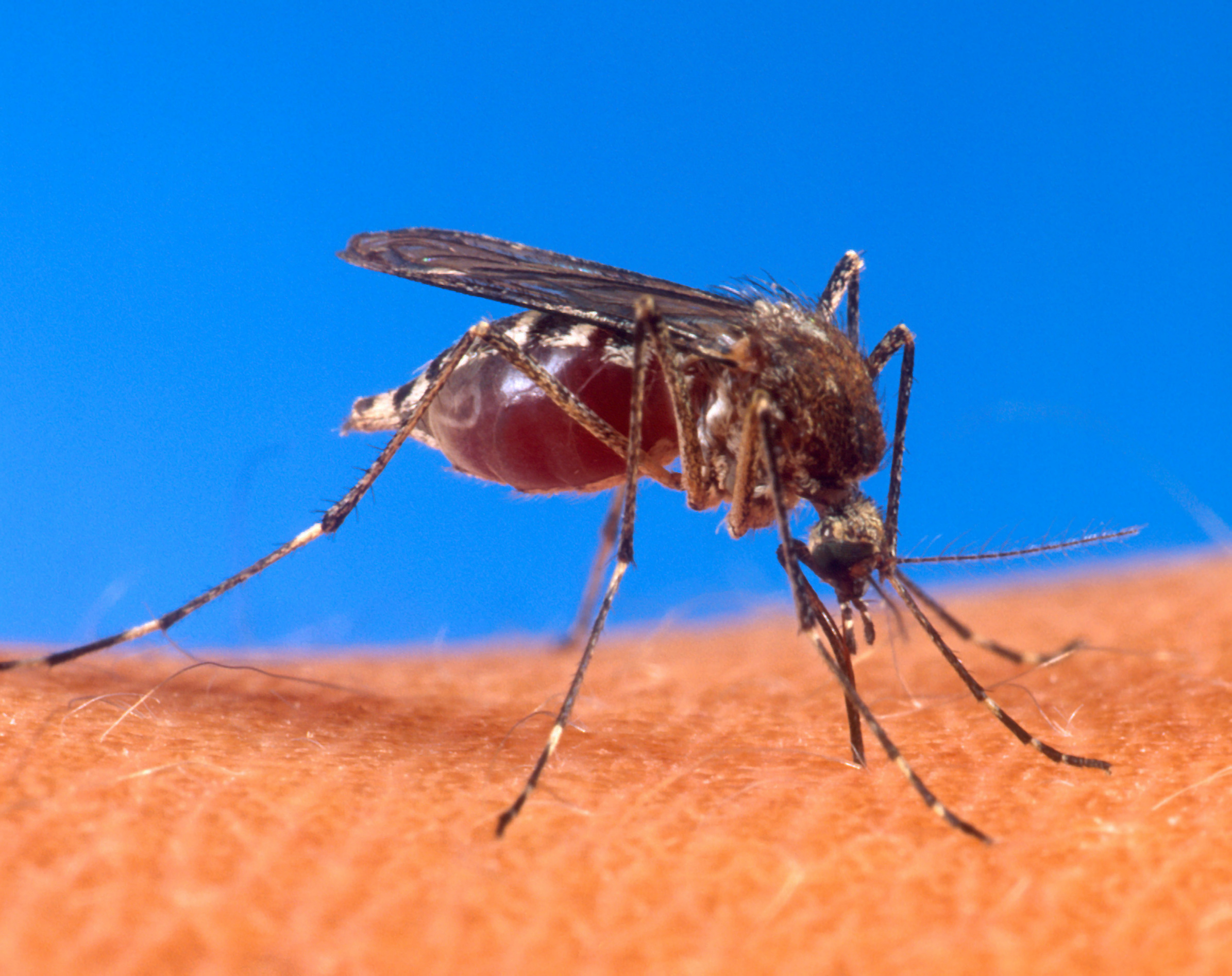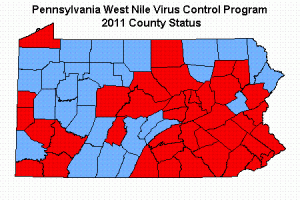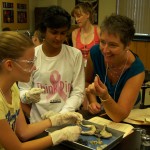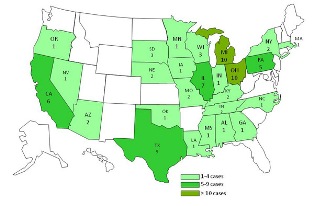More Mosquito Activity in 2011
State and local officials have stepped up their West Nile virus surveillance efforts this summer, as mosquito samples have already tested positive in 39 of Pennsylvania’s 67 counties. That’s up from 37-counties all of last year, and 33 counties in 2009. “While we are seeing a similar number of positive samples, we are seeing it in a broader geographic area,” says Kevin Sunday with the state Department of Environmental Protection (DEP). He says it’s most likely due to heavy rains. “Stagnant water that would collect after any rainfall is fertile breeding ground for mosquitoes.”
Since mosquitoes breed anywhere water can collect and become stagnant, Sunday says there are simple precautions you can take at home. They include everything from cleaning clogged gutters to turning over any wheelbarrows that can collect water. “So we encourage everyone to dump out any standing water on their property, to drill holes in the bottom of their recycling containers, if not already.”
West Nile virus has been in the United States since at least 1999, according to the Centers for Disease Control and Prevention. It affects the nervous system, and can result inflammation of the brain. However, there have been no human cases of West Nile virus reported in Pennsylvania this year.
The DEP reported numerous mosquito samples that tested positive last week. They include Fayette County’s first positive test since 2005 and Tioga County’s first positive test since 2003. Sunday says, “We are taking aggressive surveillance action across the state.”
















